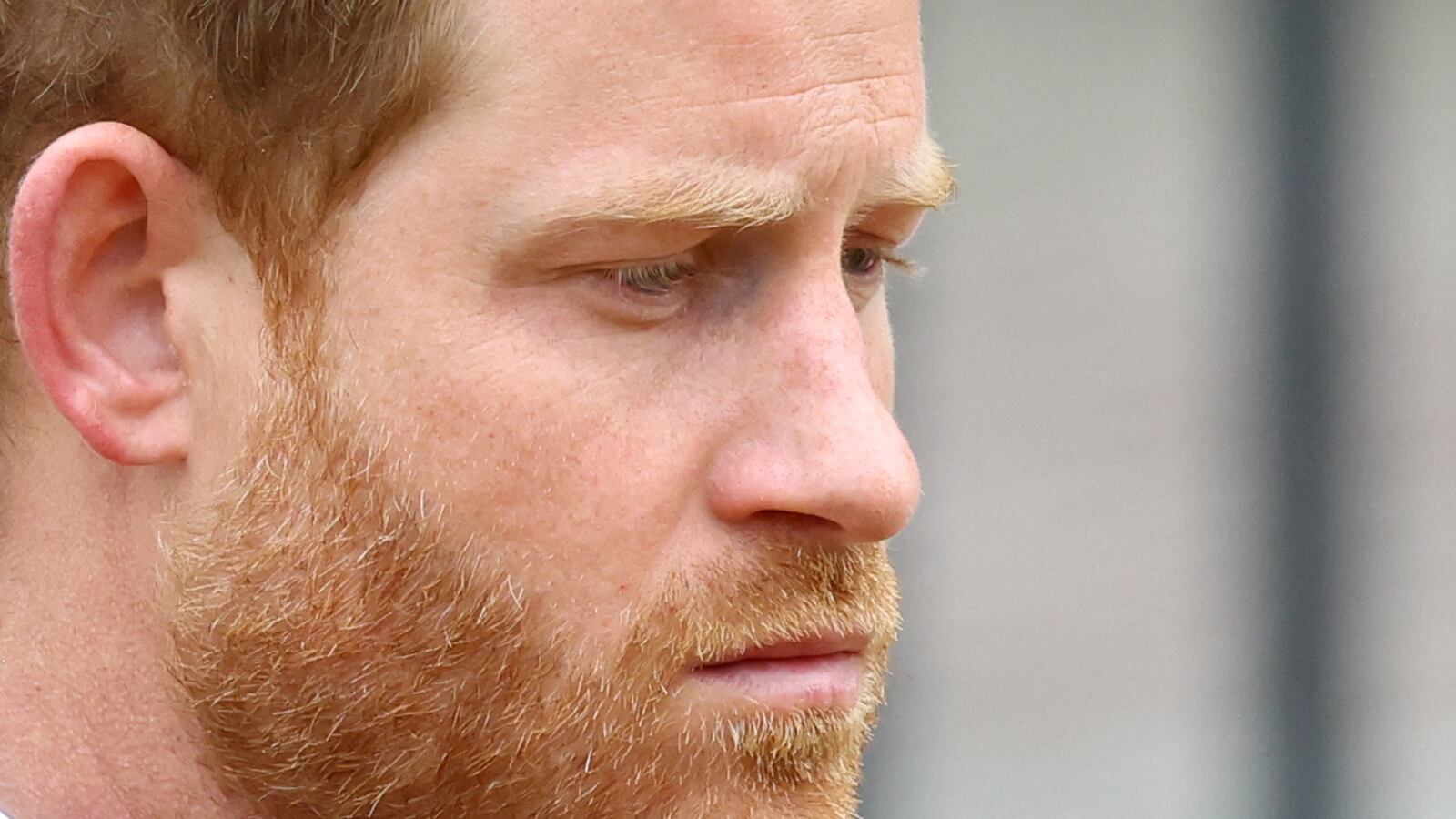Prince Harry was so unhappy with his life as a working royal that Meghan’s work in helping him find an escape route should be recognized, a source has said.
In his new book, Courtiers: The Hidden Power Behind the Crown, which is being serialized by The Times of London, Valentine Low cites “a surprising source—someone who knows Harry well but remains upset about what Harry and Meghan did”—as saying: “There is a part of me that thinks Meghan did Harry the greatest kindness anyone could do to him, which was to take him out of the royal family, because he was just desperately unhappy in the last couple of years in his working life. We knew he was unhappy, but we didn’t really know what the solution would be. She came along and found the solution.”
Low, who is the respected royal correspondent for The Times, has previously alleged in the book that Meghan’s treatment of staff left them, on occasion, “shaking” with fear.
However he also says in the book that Meghan and Harry felt “cornered” by the “ridiculous rules” over what they could and couldn’t do and the Palace’s “inflexibility.”
Another source criticized the Palace’s handling of the crisis as “incompetent beyond belief,” adding, “It just required the decision-makers to sit around a table and say, ‘OK, what are we going to do about this? What do you need to feel better? And what can we give?’”
Low quotes a source who told him: “In Meghan and the household, you had two worlds that had no experience of each other, had no way to relate to each other, had no way to comprehend each other. And Meghan was never going to fit in that model and that model was never going to tolerate the Meghan who Meghan wanted to be.”
Low also adds, however, that in the early days of the exit negotiations, a serious effort was made to find a solution with five different scenarios being wargamed, “which ranged from Harry and Meghan spending most of their time being working members of the royal family, but having a month a year to do their own thing, to them spending most of their time privately, but doing a select number of royal activities.”
Low says that at one point then-Prince Charles’s private secretary Clive Alderton “made the point that if they could get this right, they would be solving a problem for future generations of the royal family who were not in the direct line of succession.”
Ultimately, however, it was Queen Elizabeth who declared that royal rules around individuals earning money and being apolitical had to be sacrosanct, and that if Harry and Meghan wanted to “make money” or “dip their toes into American politics” they “could not be allowed to carry out official duties.”
The notion of “compromise,” Low says, was ultimately “removed by the queen.”






